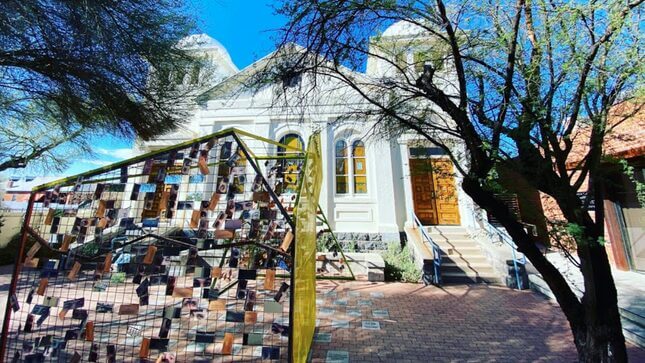Black Jewish History Museum Director, Tasked With Both Curating and Cleaning Toilets, Forced Out After Getting 'Political'
Latest

Gugulethu Moyo, who until very recently served as the first Black, woman executive director of Tuscon’s Jewish History Museum recently announced she had resigned from her post. The news came during a talk on diversifying leadership positions in museums, called “Space Makers and Risk Takers.” Instead, Moyo told the audience that she wasn’t sure how to make inroads in the industry, as she had left her job after being criticized for attempting to make connections between historical discrimination against Jewish people and the recent police murders of Black Americans, including George Floyd.
In an interview with the Jewish Telegraphic Agency Moyo described telling the audience about the disconnect she felt between the optimistic subject of the event and her own personal experience. “I told them, ‘I can’t talk about that because I was unable any longer to make space for me,’ she said. Moyo resigned just six months after a unanimous decision by the board of the Tuscon museum to promote her from operations director to executive director. Moyo said that a culture of racism made it impossible to do her job, and the same board that once fully supported her now threatens to sue her for “leaking private information,” according to Jewish Telegraphic Agency.
“I faced gender discrimination and racism, and it was a toxic environment with the board never letting me run the organization I was hired to run. I was not treated as a leader,” Moyo said, adding that she is being blamed for problems that existed before she stepped into her role.
-

-

-

-

-

-

-

-

-

-

-

-

-

-

-

-

-

-

-

-

-

-

-

-

-

-

-

-

-

-

-

-

-

-

-

-

-

-

-

-








































